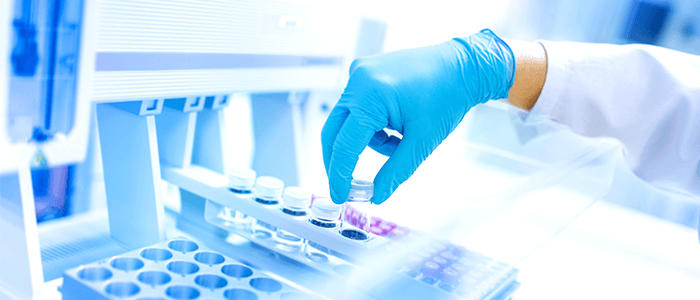
What are the other names used for Molecular testing?
Other names used but mean the same thing as Molecular testing are:
What is molecular testing?
No two cancers are the same. With lots of targeted therapy and immunotherapy being developed for cancer treatment, it has become essential to understand the different types of cancers and their molecular characteristics. This profiling can be done through molecular testing for specific targets present in the cancer cells for which there may be effective drugs. These tests look for alteration in genes or proteins in cancer cells and may be helpful in diagnosis, prognostication, and treatment selection for various cancers.
In what cancers are these tests useful?
These tests are now routinely done in most cancers to identify if targeted therapy or immunotherapy can be used as a treatment option. Some of the examples of currently used molecular testing are:
|
All cancers |
MSI / dMMR; Comprehensive somatic gene profiling |
|
Lung cancer |
EGFR; ALK; ROS; BRAF; RET; MET; PDL1; TMB; MSI / dMMR |
|
Breast cancer |
ER; PR; HER2; PIK3CA; PDL1; BRCA; HRR genes; Gene recurrence score |
|
Colon cancer and Rectal cancer |
KRAS; NRAS; BRAF; HER2; MSI/dMMR |
|
Pancreatic cancer |
BRCA; HRR |
|
Ovarian cancer |
BRCA; HRR; MSI / dMMR |
|
Head and neck cancer |
PDL1, MSI / dMMR |
|
Oesophageal cancer |
PDL1; MSI / dMMR |
|
Gastric cancer / GE Junction cancer |
HER2; PDL1; MSI / dMMR |
|
Melanoma |
BRAF |
|
Gallbladder cancer |
FGFR2; HER2; MSI/dMMR |
|
Brain tumours |
BRAF; MGMT |
|
Prostate cancer |
BRCA; HRR; MSI / dMMR |
|
Thyroid cancer |
BRAF; RET |
|
Uterine or endometrial cancer |
ER; PR; HER2; TMB; MSI / dMMR |
How do they help in cancer treatment?
Specific biomarkers, if present, respond to particular Targeted therapy or immunotherapy. In the absence of these markers, these drugs may not be very effective if given. These molecular test results will help the oncologist decide the best course of treatment for the patient. This approach of giving targeted treatment for a specific molecular alteration is also called precision medicine or personalized treatment.
It is also important to understand that these molecular alterations are specific to the type of cancer present. The response to any treatment is based on extensive research and clinical trials. A molecular alteration is present does not necessarily mean that a drug relevant for that alteration will work if research and clinical trial data have not demonstrated any effectiveness for that cancer.
How are these tests done?
These tests are usually done on the cancer tissue sample taken during a biopsy or surgery. Sometimes a blood sample can also be used, which is called a liquid biopsy. Different tests are required for other molecular alterations. These tests can be Immunohistochemistry (IHC), Next-generation sequencing (NGS), Polymerase chain reaction (PCR), Fluorescence in situ hybridization (FISH), etc.
How are treatments decided based on the results of molecular tests?
Different molecular changes may be present in different types of cancers for which specific drugs may exist and be effective in those patients. Your oncologist will advise you the drugs that may be effective for the molecular alteration identified. This personalized approach results in better treatment outcomes in these patients with lesser side-effects when compared to traditional chemotherapy-based treatment. It is also essential to recognize that not all the time a molecular alteration is identified, and even if it is there, drugs may not always be effective. A lot of research is ongoing to identify more targets and drugs that may be effective. You can talk to your oncologist to see if any clinical trials are available for you to participate in.
How are these different from genetic testing to identify hereditary cancers that runs in families?
These molecular tests are also called somatic tests and are not known to run in families & cannot be passed on to their children. Molecular tests are done in the tissue samples or blood samples of cancer patients, and changes are present in the cancer cells and not in normal cells. They are different from genetic tests. Genetic tests are done to identify genes that runs in families and predispose a person to an increased risk of developing cancers. They are called hereditary cancers. In genetic testing for hereditary cancers, these changes are seen in normal cells, even in the absence of cancer.
Cancer Therapy India is one of the best cancer care centres for genetic testing in India. Cancer Therapy has access to state-of-the-art facilities that specializes in genetic evaluations, and diagnosis. If you are searching for molecular cancer testing or genetic testing in Bangalore, then contact Cancer Therapy India to know more about the process and available experts.